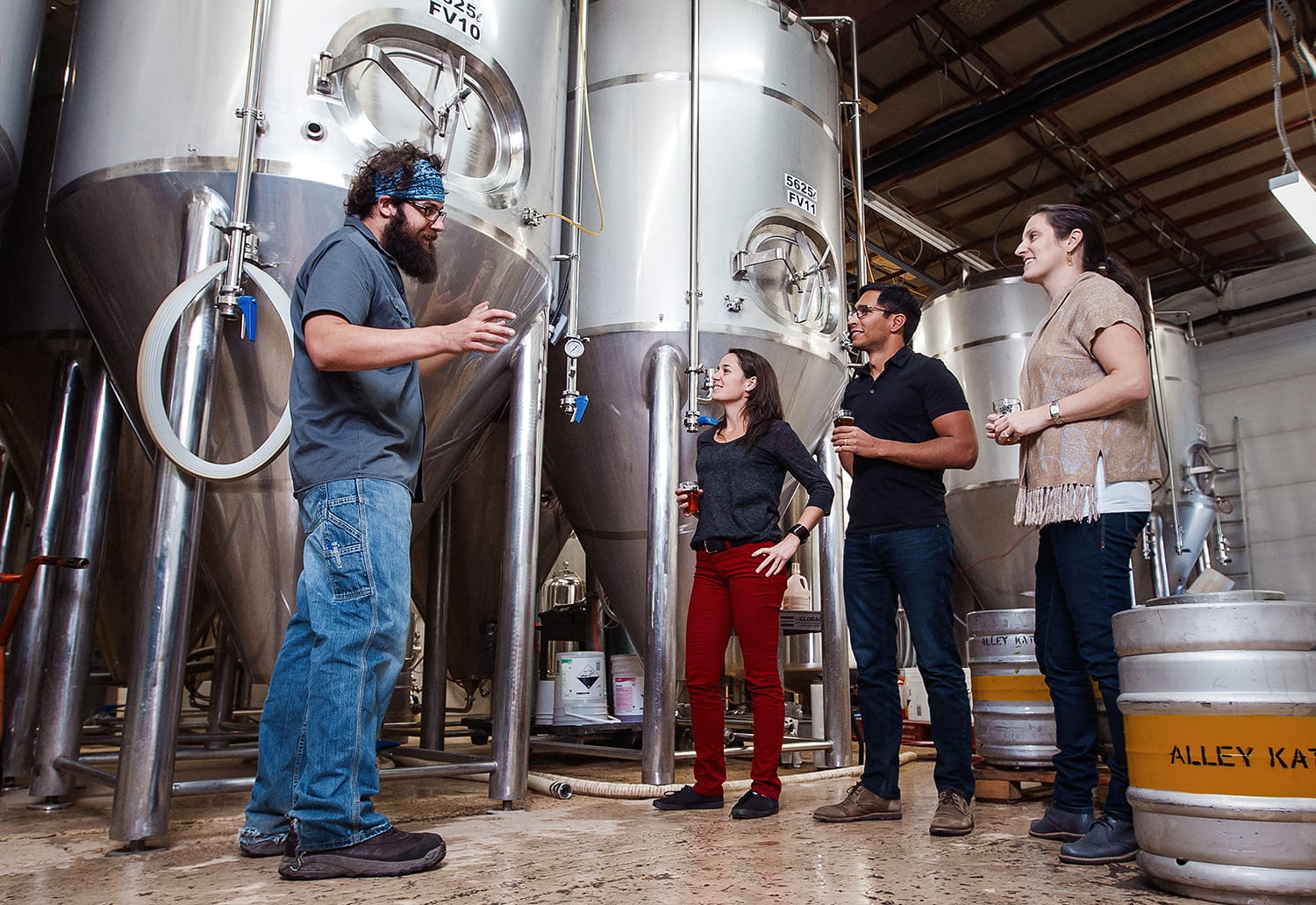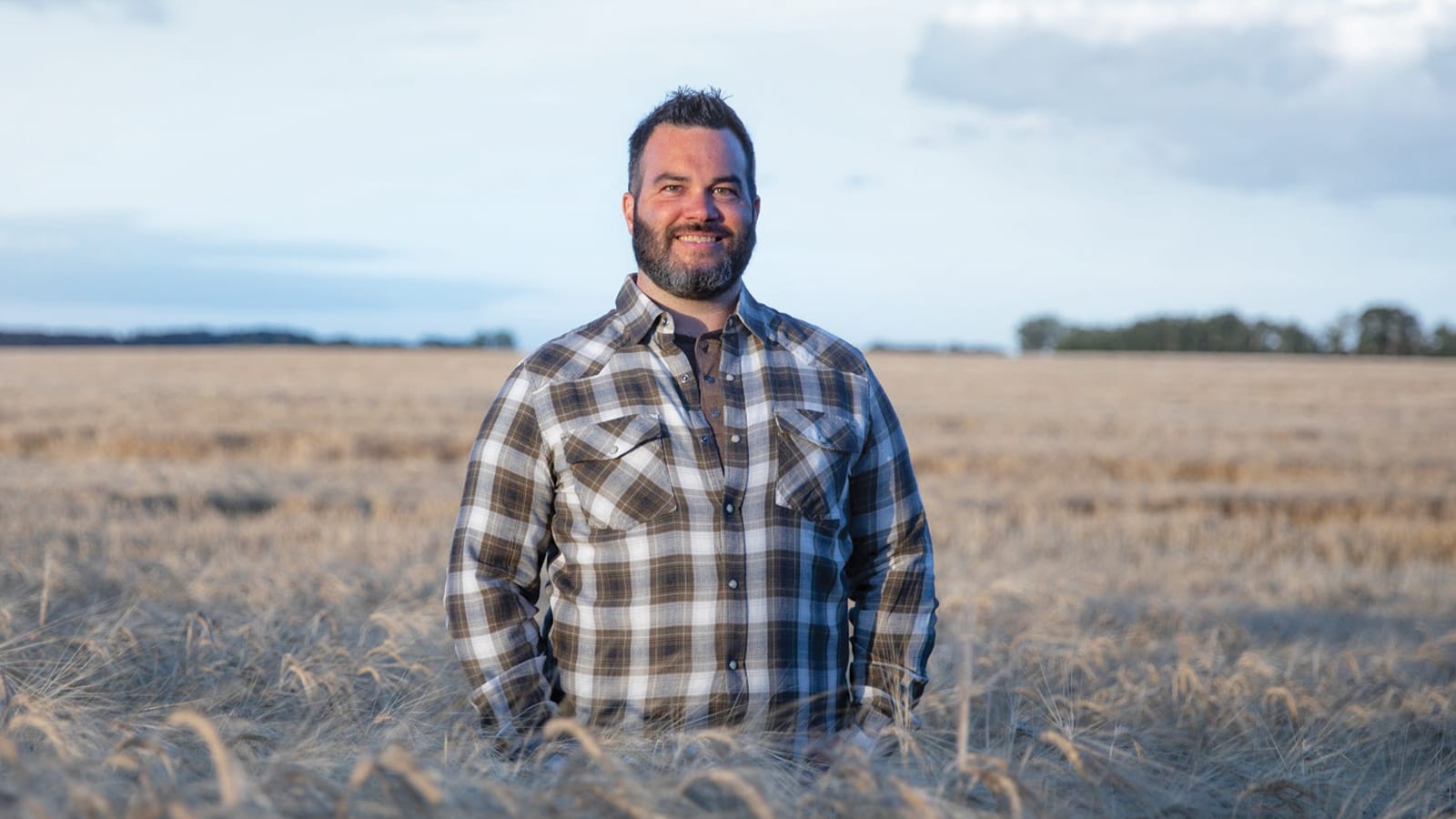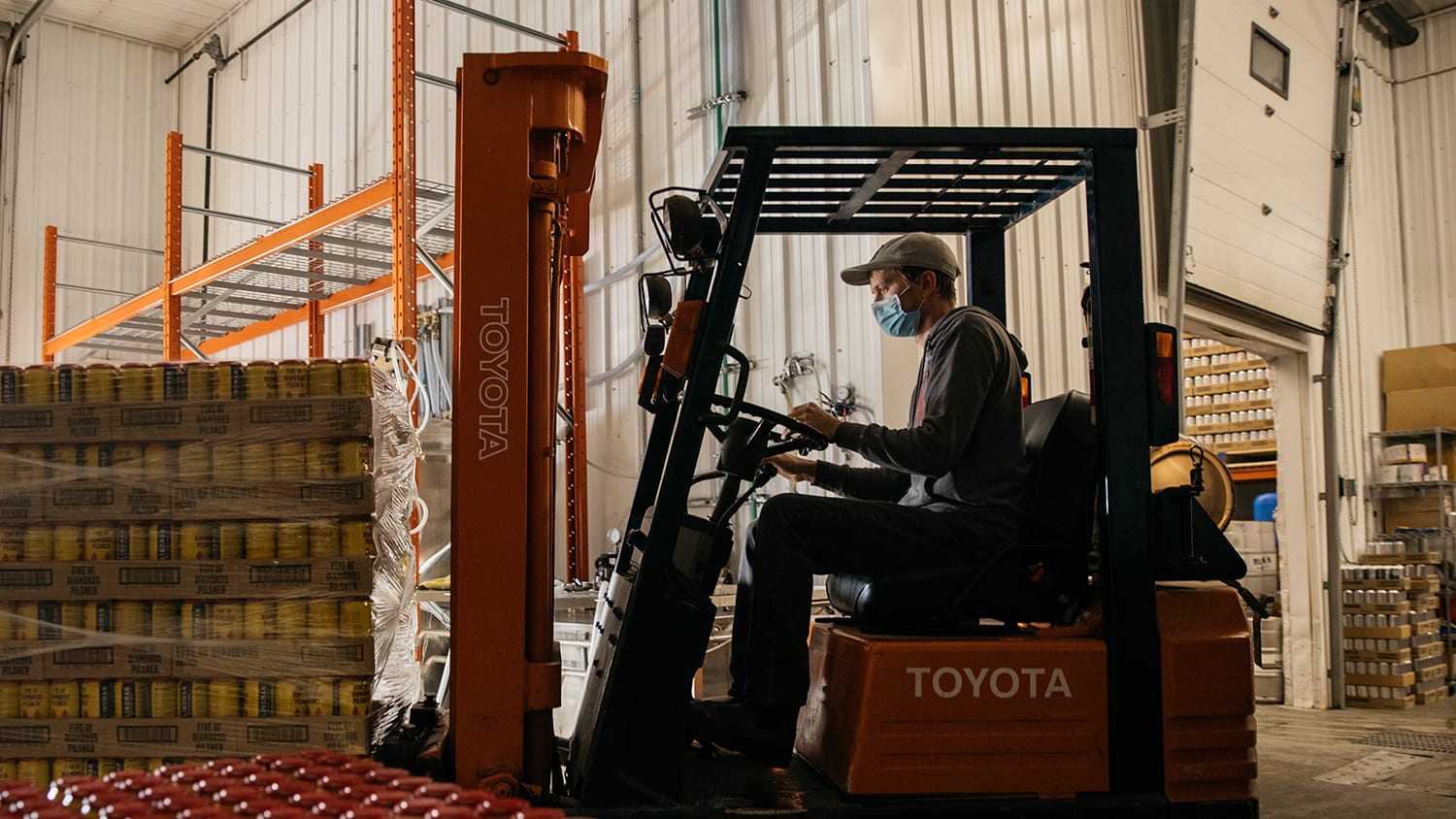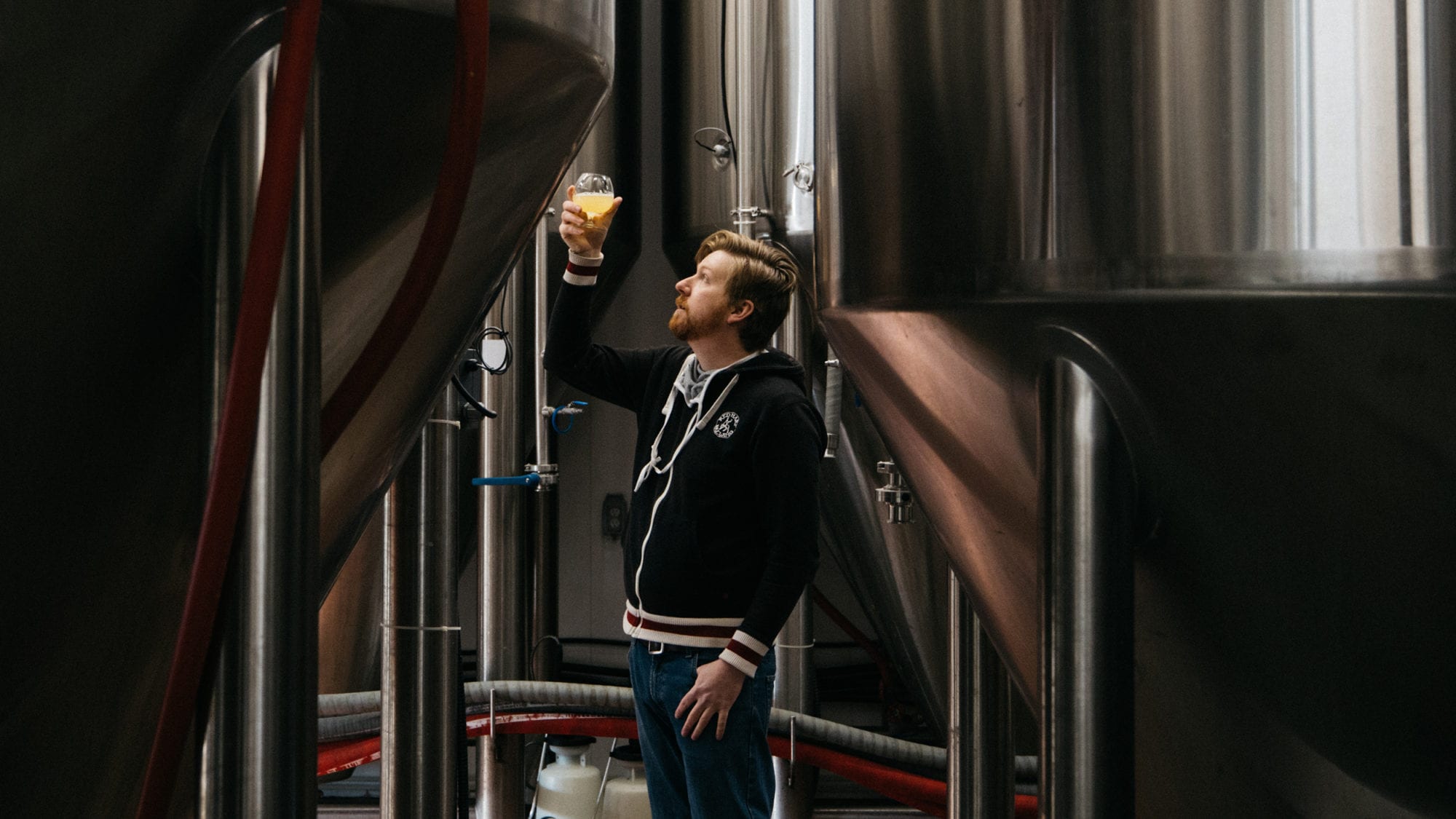Looking back, Neil Herbst laughs at the difficulties of being an Alberta craft beer pioneer. When he co-founded Alley Kat Brewing in Edmonton in the mid-1990s, consumers favoured clear, mild lagers. Turning tastes toward craft beer was no joke for Herbst and company, who proffered the likes of an innocuous but unfiltered wheat ale.
“We thought people would understand what it was, but they often sent it back,” Herbst recalls. “They’d say, ‘It’s cloudy, there’s something wrong with it.’ It was a bit of a slog.”
Since Alley Kat’s tumultuous start, the province’s craft contingent has expanded tenfold, to about 130 producers, stretching from Grande Prairie to Lethbridge, Banff to Lloydminster. And Herbst’s cloudy beer would be considered tame by modern standards. Today, craft brews are celebrated for their differences, from hazy and hoppy to malty and sour. What hasn’t changed, according to Herbst, is the doggedness of brewers. Alberta’s craft beer industry has boomed because of their brewing skills, entrepreneurial spirit, creativity and good, old-fashioned determination.
HOMEGROWN INDUSTRY
In 2013, the Alberta government removed its minimum annual brewing requirement of 500,000 litres, which had effectively barred small brewers from the industry. Many of the province’s current craft operations were started by passionate homebrewers, as Herbst once was. Now, ambitious beer lovers can learn the trade at Olds College: Its brewmaster and brewery operations management program produces about 25 graduates annually. “There are more jobs than graduates right now,” says Jordan Ramey, an AMA member and professor of brewing sciences at Olds.
While Ramey illuminates the art and science of brewing for students, he also highlights their unique geographical advantage. “In Alberta, we make some of the best barley on earth,” he says. The world’s biggest breweries buy that malted barley and ship it back in their ales and lagers. On the other hand, Alberta’s small brewers keep the ingredients close to home. “I always say beer is food,” Ramey adds, “and food is best at the source.” For craft beer, that source is a taproom, where visitors can sample the suds. “That’s the freshest beer you’re going to get. A craft brew from elsewhere may be perfectly fine, but it doesn’t have the same magic.”

ALBERTA RISING
For Red Deer’s Craft Beer Commonwealth, the magic is in the flavour. Located in the new Gasoline Alley Indoor Farmers’ Market, the brewery is the result of cooperation that’s common in the industry. It’s normal for companies to share ideas, knowledge and equipment—and even make beers together. But it’s unusual for those relationships to become permanent as they have with Commonwealth, a partnership between the city’s Red Hart Brewing, Lacombe’s Blindman Brewing and Red Shed Malting in Penhold.
As a co-owner of Red Shed, AMA member Matt Hamill looks forward to using Commonwealth’s small brewing operation to make intriguing, collaborative beers—while educating market visitors about local ingredients. (Hamill’s family farm grows much of the barley that Red Shed malts.) Hamill proudly notes the growing stature of Alberta’s beer industry: At the 2020 Canadian Brewing Awards, our small brewers took home more gold medals than any other province. “I would love to see that story tied back to the ingredients, and how fresh they are,” he says.
MEET A BREWER: THE ESTABLISHMENT BREWING CO.
For Natasha Peiskar, creativity is one of the joys of craft brewing. “Innovation is the heart of the industry,” she says. “We’re constantly striving to create new products.” As a homebrewer who worked her way to the pros, Peiskar was drawn to Calgary’s Establishment mainly for its barrel-fermented beers. After being inoculated with a unique mix of microbes, the beer sits in oak casks for up to three years. “It really is a labour of love,” she says. “We’re checking those barrels, doing tastings, making sure there’s the right acidity, the right wood character, the right flavour.” The results are complex, tart ales that represent the possibilities of what an Alberta beer can be.
“When you look out the window of Commonwealth and can almost picture a combine in the field, that really ties it all together,” says Shane Groendahl, co-owner of Blindman Brewing and an AMA member. In just a few years, a complete supply chain has formed organically around Alberta brewing, making craft beer one of the province’s most homegrown products. From planting and growing to malting, brewing and pouring a pint, it’s a complete farm-to-glass experience.

THE FUTURE OF BEER
Highlighting the link between pint and prairie was a fairly simple inspiration for an industry that’s endlessly innovating. Blindman uses a sophisticated centrifuge system that helps get certain beers to market faster while improving their consistency and shelf life. Last August, Calgary craft veteran Village Brewery participated in a project to brew beer using treated wastewater, an exercise in sustainability.
COVID-19 has also revealed the nimble nature of Alberta’s small breweries, many of which rapidly responded to last spring’s lockdown—and its accompanying restaurant and taproom closures—by offering online sales and home delivery services.
MEET THE BREWERS: DOG ISLAND BREWING
Oil patch tradesmen Ben Fiddler and Chad Paulson put their skills to new use when they decided to scale up their home-brewing operation. A delicious reason for a road trip to Slave Lake, Dog Island’s 18-tap taproom caters to all preferences, whether you’re in the mood for a light and refreshing raspberry ale, rich and satisfying amber or a hoppy, flavourful IPA. Curious about the brewery’s branding? Its namesake island can be seen from nearby Devonshire Beach; a few hours soaking in the sun will no doubt help you work up a thirst.
Such innovations tell AMA member Blair Berdusco the industry still has room to grow. She’s the executive director of the Alberta Small Brewers Association, which brings together and supports roughly 112 member breweries, including all the beer makers in this story. “I don’t believe Alberta’s market is saturated,” she says. “I think there are still a lot of locations that would love to have a brewery.”
She’s also reassured by the way customers responded when the province began to reopen. “The support from the community is amazing,” she says. “And that community feel is evident everywhere you go in any of our breweries.”
It’s a different world than Neil Herbst once knew. He and his wife, Lavonne, no longer own Alley Kat. In early 2020, they sold to Zane Christensen and Cameron French, two local craft beer lovers who are eager to grow the business.
Despite its increasing profile, Christensen notes that craft beer accounts for just 10 percent of Alberta’s beer market. The goal is to expand that market share to elevate all small breweries. “Sure, there’s competition,” he says, “but it’s also, ‘Let’s all win together.’” Cheers to that!

HAIL THE ALE
Savour these recent award winners by Alberta breweries
Hefe
Brauerei Fahr
The Turner Valley brewery’s Bavarian-style wheat beer made headlines last fall by winning gold at the World Beer Awards. It’s a smooth sip, with background notes of banana, white pepper and cloves.
Railway Avenue Rye IPA
Canmore Brewing Co.
A 2020 Alberta Beer Awards gold medal recipient, this India Pale Ale combines pine, floral and caramel notes with the spiciness of rye.
Brick and Mortar Porter
Medicine Hat Brewing Co.
One of the brewery’s four 2020 Canadian Brewing Award winners, this dark ale is strong but smooth, a balancing act suggestive of coffee, chocolate and caramel.
PLEASE ENJOY RESPONSIBLY
Don’t drink and drive. Plan for a safe ride home. Designated driver services are available throughout Alberta to help get you home if you’ve been drinking.
Scott Messenger is the author of Tapping the West: How Alberta’s Craft Beer Industry Bubbled out of an Economy Gone Flat.
